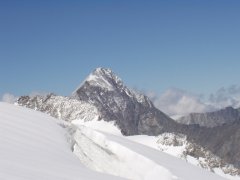Categories Of Mining Tourism

A single all-Russian sporting classification of routes (EFICM) defines the basic principles, requirements and technology for the classification of sports bypasses.
Depending on the difficulties encountered, the areas of access, autonomy, innovation, length of the route and a number of its other indicators, which are characteristic of a sporting tourism, are divided into day-to-day, non-category and classic. In addition, walking is divided by type of tourism: pedestrian, water, mountain, skill, cycling, road, motorcycle, speléo and sail, and may represent combinations.
Sports are divided in complexity by three degrees of complexity, ranging from I to III, and six categories of complexity (c.) from I to IV.

Categories of difficulty may be defined both in accordance with the " Rolling of Classified Sporting Routes " and associated lists of local obstacles, such as trans-shipments, peaks, caves, and in accordance with this EMAC. Compared with the “Serious ...”, the technical complexity, diversity and nature of the hierarchy obstacles must be no lower than the classified routes of the same complexity in the area.
The classification of trips is used in child-South tourism.
Table 1
| Level of complexity | Species | Length, km | Duration, days |
| Pedestrian, ski | 75 | 6 - 8 | |
| Pedestrian mountains | 60 | ||
| Cycles | 120 | ||
| Water | |||
| 50 | 4 - 6 | ||
| 40 | |||
| 80 | |||
| 30 | 3 - 4 | ||
| 25 | |||
Given the specificity of child-South tourism, there is no classification of complex phases for sailing, automobile, speleutic and mountain tourism.